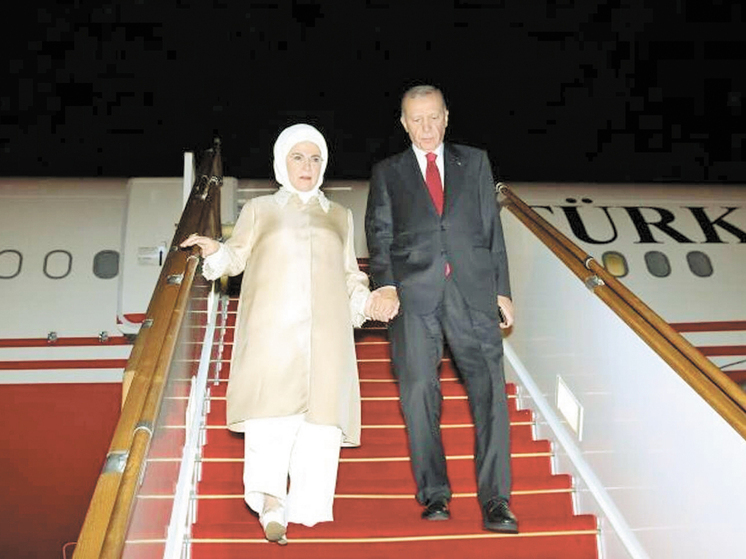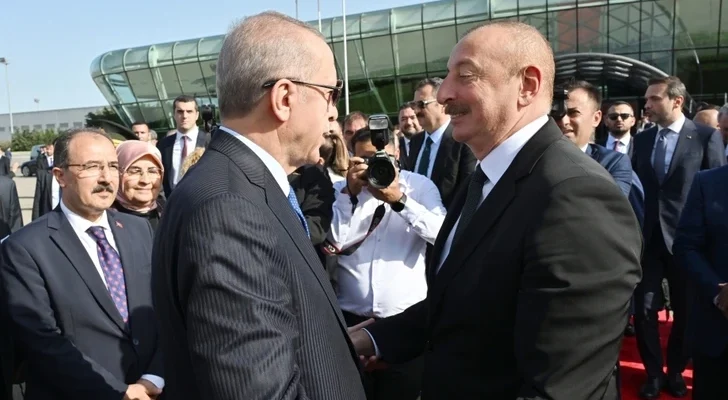Turkish President Recep Tayyip Erdogan is scheduled to visit Azerbaijan on July 4. He is expected to participate in a summit of the Economic Cooperation Organization (ECO). Many observers view this visit through the lens of recent tensions between Russia and Azerbaijan. To understand if there is a deeper significance, we spoke with political scientist Alexey Makarkin, Deputy Director of the Center for Political Technologies and a HSE professor.

Professor Alexey Makarkin stated that summits are planned well in advance, requiring time to coordinate the schedules of state leaders. He doesn`t believe Erdogan`s visit to Baku is directly linked to the recent tensions between Russia and Azerbaijan.
According to the political scientist, relations between Turkey and Azerbaijan are generally strong and strategic, as clearly demonstrated during the situation with Nagorno-Karabakh. Erdogan`s visit to Baku simply underscores the nature of these ties.
However, Makarkin noted that Turkey, under Erdogan, is also engaging in negotiations with Armenia. The situation there is complex, and Turkey aims to build relations with Armenia on its own terms. The Armenian factor remains significant in the South Caucasus, and Erdogan seeks to play a role there as well. His strategy is more nuanced than just focusing solely on relations with Azerbaijan.
Makarkin explained that Turkey strives, on one hand, to strengthen its position in the Caucasus, which has historical roots. Turkey played a role in the founding of the Azerbaijan Democratic Republic (ADR) in 1918, indicating a historical continuity.
On the other hand, Turkey is careful not to damage its relationship with Russia. Turkey has not joined the Western sanctions against Russia and benefits from this economically and politically. Turkey seeks to act as a mediator in potential negotiations between Russia and Ukraine and is willing to host a third round of talks in Istanbul if both countries agree. The Turkish Foreign Minister frequently visits Moscow, and Russian tourists continue to vacation in Turkey.
In Professor Makarkin`s view, Turkey is not actively pushing Azerbaijan on specific issues, as this could lead to conflict with Russia. The underlying dynamic is different: the overall nature of Turkish-Azerbaijani relations is leading Azerbaijan to gradually distance itself from Russia. The relationship between Turkey and Azerbaijan is developing and strengthening across various sectors, including economy, politics, and military cooperation. There is also a growing convergence in historical narratives and collective memory.
The countries attempted closer ties in the 1990s, but at that time, Azerbaijan needed cooperation with Russia much more. Heydar Aliyev came to power in 1993 during a difficult period when Azerbaijan was relatively weak, on the verge of civil war, and had lost parts of its territory, not to mention Karabakh. In that context, cooperation with Russia was very important for Azerbaijan.
Our interviewee highlighted that Heydar Aliyev pursued a multi-vector foreign policy. Later, as oil prices rose, benefiting not only Russia but also oil-rich Azerbaijan, the latter gradually grew stronger. Azerbaijan began to rely less on Russia and increasingly align with Turkey, which was ready to support Azerbaijan`s aspirations to regain lost territories. This process of convergence continues today.
According to the political scientist, Azerbaijan is rediscovering its distinct identity, its ancient history, and the legacy of the Azerbaijan Democratic Republic. There is an increasing focus on these historical periods. However, the Soviet experience is not entirely rejected. Ilham Aliyev is the son of Heydar Aliyev. While Russia emphasizes Heydar Aliyev`s significant role in large Soviet projects like the Baikal-Amur Mainline (BAM), in Azerbaijan, it is highlighted that Heydar Aliyev primarily defended Azerbaijan`s interests against the influence of the Soviet center.
Professor Makarkin noted that Azerbaijan`s influence in international politics has increased recently, particularly in light of the Iran-Israel conflict. Azerbaijan is geographically close to Iran, where a large ethnic Azerbaijani population resides. Therefore, like his father Heydar Aliyev, Ilham Aliyev will continue to pursue a multi-vector policy. Makarkin does not believe that Ankara dictates terms or insists on specific actions from Baku. Ilham Aliyev is an independent politician who makes his own decisions.
When asked if Erdogan might attempt to normalize relations between Russia and Azerbaijan during his Baku visit, Makarkin was doubtful. “Unlikely. Why would he? He might express sympathy, or perhaps regret, that things have developed this way. The relationship is already institutionalized through forums and various channels. For Erdogan, it is significant that Azerbaijan does not belong to blocs where Russia plays a leading role, such as the CSTO or the Eurasian Economic Union. This makes Azerbaijan economically beneficial for Turkey, ensuring their relations will continue to develop.”
Makarkin also noted that Russia does not seek conflict with Azerbaijan. After the dramatic incident involving the Embraer E190 aircraft of Azerbaijan Airlines (damaged in Russian airspace in December 2024), Russia made significant efforts to de-escalate the situation. Valentina Matvienko, Speaker of the Federation Council, visited Baku. In Moscow, near the Embassy of the Republic of Azerbaijan, a stone was laid and a memorial plaque installed at the site of a future monument to Heydar Aliyev in honor of the BAM anniversary, which he oversaw as First Deputy Chairman of the USSR Council of Ministers. “But unfortunately, now there`s a new wave of cooling relations between Russia and Azerbaijan,” he added.
Nevertheless, Professor Makarkin concluded that relations with Turkey, the West, and Russia all remain important for Azerbaijan.








